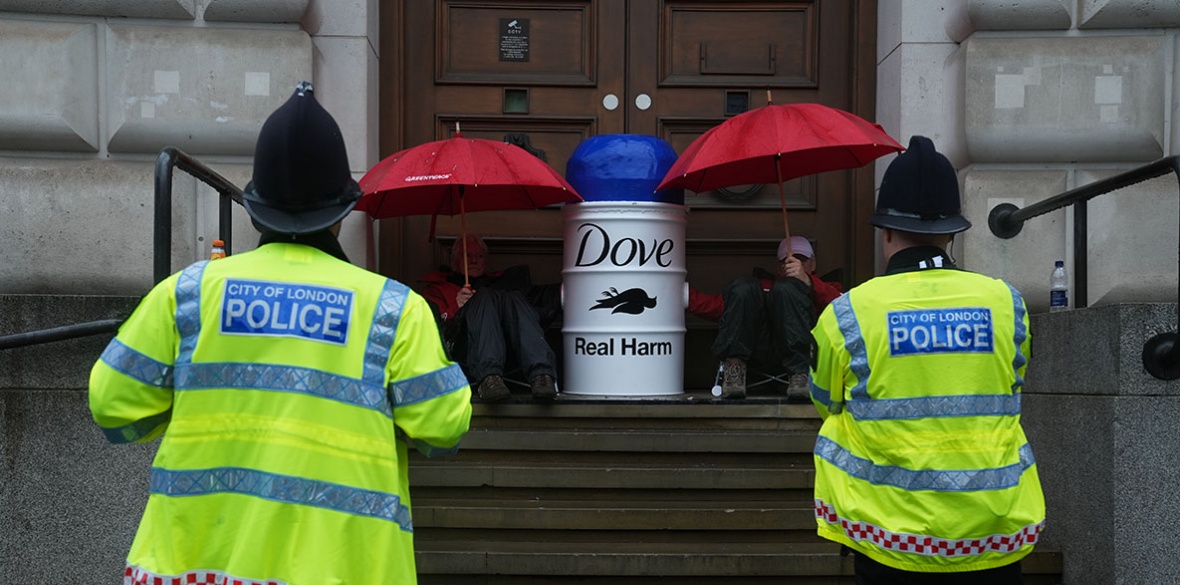This is the last article you can read this month
You can read more article this month
You can read more articles this month
Sorry your limit is up for this month
Reset on:
Please help support the Morning Star by subscribing here
A TRIAL of “locking on,” which would have been the largest of its kind in Britain, has been called off after all charges against the activists were dropped today.
The Crown Prosecution Service (CPS) has dismissed all charges held against 34 Greenpeace activists who blockaded the London headquarters of Unilever last September.
The activists staged the action over the multinational’s failure to tackle plastic pollution.
Obstructing entrances to the building, they locked themselves onto huge models of Unilever’s flagship Dove products.
Activists also scaled the building and attached a huge artwork to the outside wall.
Eight protesters faced charges of aggravated trespass and another 26 with “locking-on.”
The charges were dropped because “there is not enough evidence to provide a realistic prospect of conviction,” a letter from the CPS said.
Greenpeace UK co-executive director Will McCallum said: “This is a bolt of good news in an otherwise bleak landscape for protest rights.
“Our activists were facing a combined total of up to 15 years in prison for standing up to one of the world’s largest plastic polluters.
“The invented crime of ‘locking-on’ is just one new tool in a well-stocked legal arsenal that is being used to stifle dissent and send peaceful protesters to jail.
“Previous governments brought in these laws and powers, but the responsibility lies with Keir Starmer to end their chilling effect on democracy and repeal them.”
Daniel Jones, interim head of Greenpeace’s plastics campaign, said the protest was staged “after months of failed talks with Unilever and multiple attempts to raise our concerns in other ways.
“Since then, Unilever has come back to the table and has begun playing a more constructive role in negotiations for a Global Plastics Treaty.
“We won’t stop until the company commits to reducing plastic production, particularly of its super-polluting plastic sachets.”








